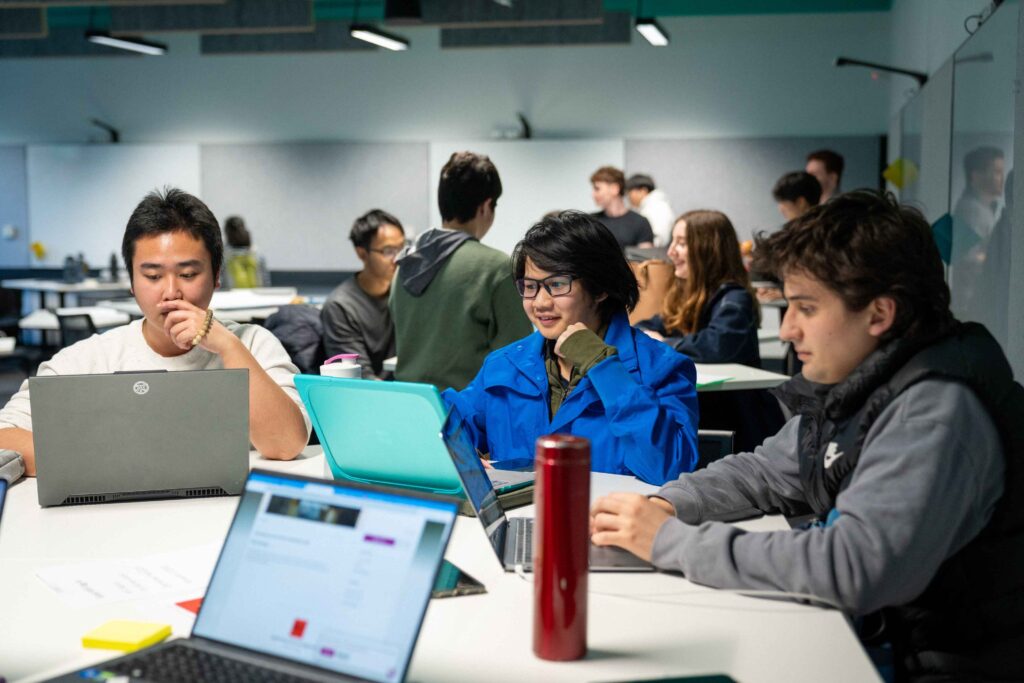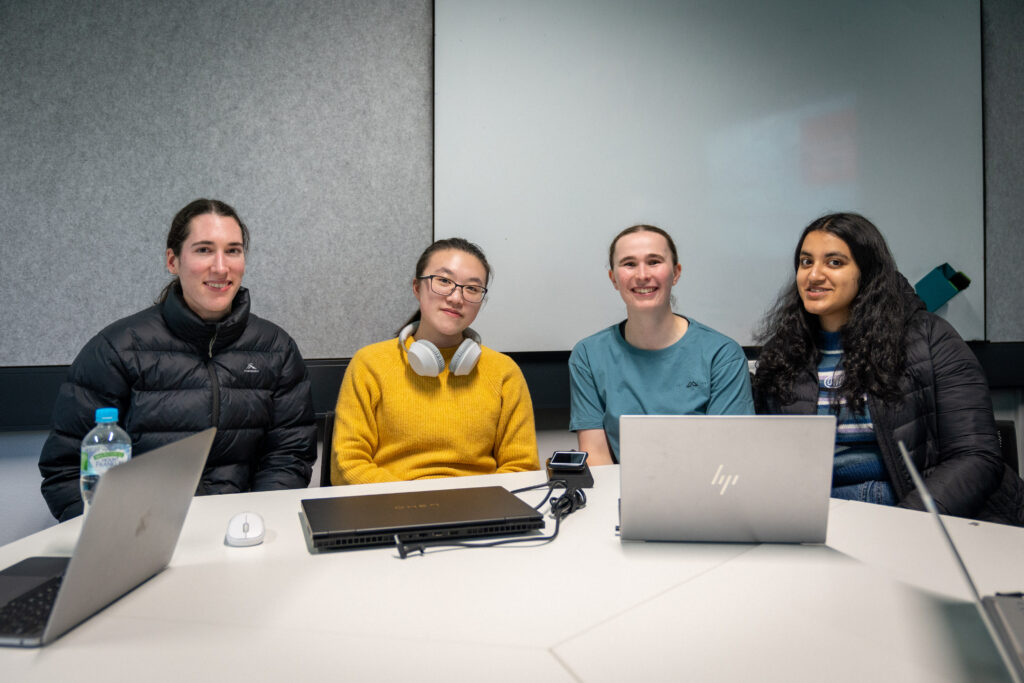The Warren Centre & Professor Ron Johnston
Humanitarian
Innovation Hackathon
Our Hackathon Winners
With 14 incredible solutions to choose from, our judges have spent the last few weeks deliberating to determine the three strongest entries. We are now proud to announce the three winning teams in this year’s Hackathon
First Place
Team 21A – Nie Bang
Farhan Agus Ferdiansyah, Hastria Pramudyati Kusuma, Devo Farel Andrew Siagian and Erlina Anggraeni
University of Sydney
Second Place
Team 37B – Sparkies
Julie Davies, Jessica Li, George Allman and Terina Dawoud
University of Sydney
Third Place
Team 38B – Thread
Queena Wang, Kalyani Jijith, Pratul Singh Raghava and Gia Chopra
University of Sydney
Special Commendation
Team 34C – The Innovationeers
Angus Henderson, Wesley Henderson and Franco Yemma
University of Sydney & University of Technology Sydney
Finalists
This year, our judges faced a tough challenge selecting the top 14 teams to advance to the final round.
Each of these teams has demonstrated outstanding creativity, innovation, and commitment.
Team 63 – Oceanic Innovators
Rosa Turagavou, Lydia Garae and Naayaab Bin Sarfraaz
The University of the South Pacific
Team 34C – The Innovationeers
Angus Henderson, Wesley Henderson and Franco Yemma
University of Sydney & University of Technology Sydney
Team 66 – AidNova
Maverick Cui and Siddharth Choudhury
University of New South Wales
Team 52D – LAW-ocao
Warren Kusuma, Ashley Dipad-Gimena, LeWon Loh
and Mishanya (Mikhail) Romadinov
University of Melbourne & Monash University
Team 25B – MATH
Amelie Lee, Tracy Deng, Mehreen Ullah and Hazel Villar
University of Sydney
Team 90D – 640 PEP Hours
Luke Jang, Stephen Franklin and Adhiraj Dogra
University of Sydney
Team 67 – Strawberry
Tazin Saiyed and Aleeza Shah
University of New South Wales
Team D54 – Smol Beanz
Monishi Tripura, Sejal Gupta, Yvonne Chau and Christine Ngo
Griffith University, University of Melbourne & University of Sydney
Team 64D – ProTani
Rafi Ardiel Erinaldi, Galih Kurniawan and Ella Suita
Australian National University & University of Sydney
Team 21A – Nie bang
Farhan Agus Ferdiansyah, Hastria Pramudyati Kusuma, Devo Farel Andrew Siagian and Erlina Anggraeni
University of Sydney
Team 37B – Sparkies
Julie Davies, Jessica Li, George Allman and Terina Dawoud
University of Sydney
Team 38B – Thread
Queena Wang, Kalyani Jijith, Pratul Singh Raghava and Gia Chopra
University of Sydney
Team 40A – UC Lead
Wiseson Kuang, Janre Lim and Analsa Jolly
University of Canterbury
Team 92C – Drunk Monkeys
Ashutosh Kapil Panday, Luca Morrow, Luoyu Wang and Jason Ye
University of Sydney and University of New South Wales
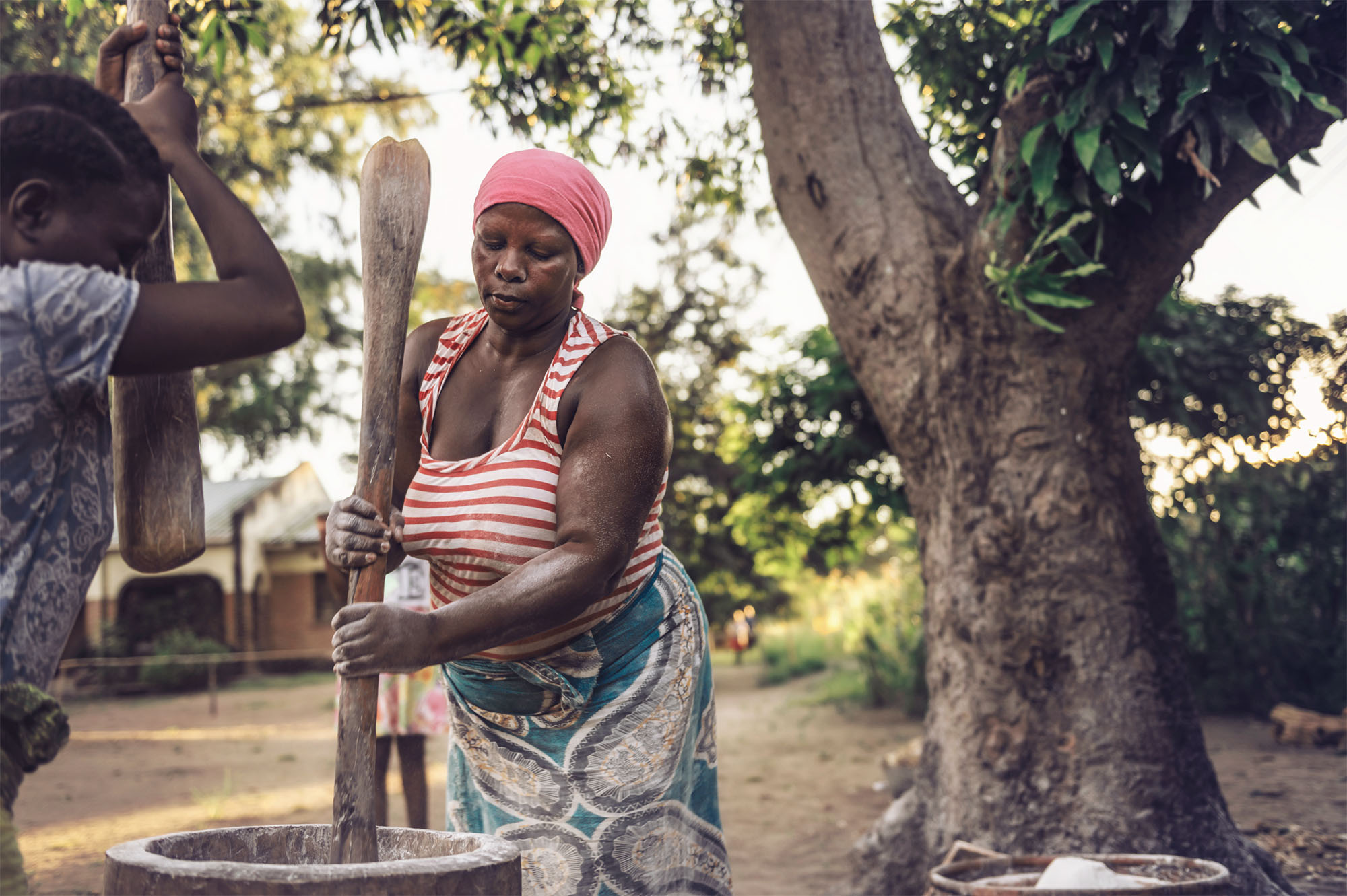
Hackathon Challenges
This year, the Hackathon featured four challenges all based around UN SDG 2: Zero Hunger. From improving nutrition to biodiversity, each challenge was designed to put our participants’ engineering skills to the test:
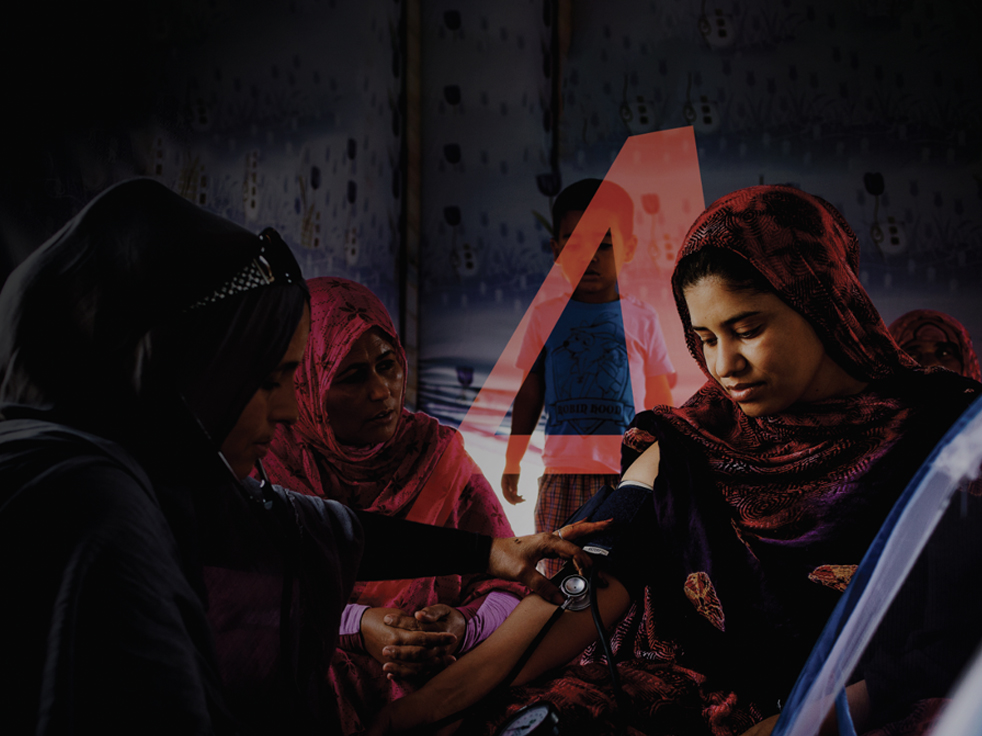
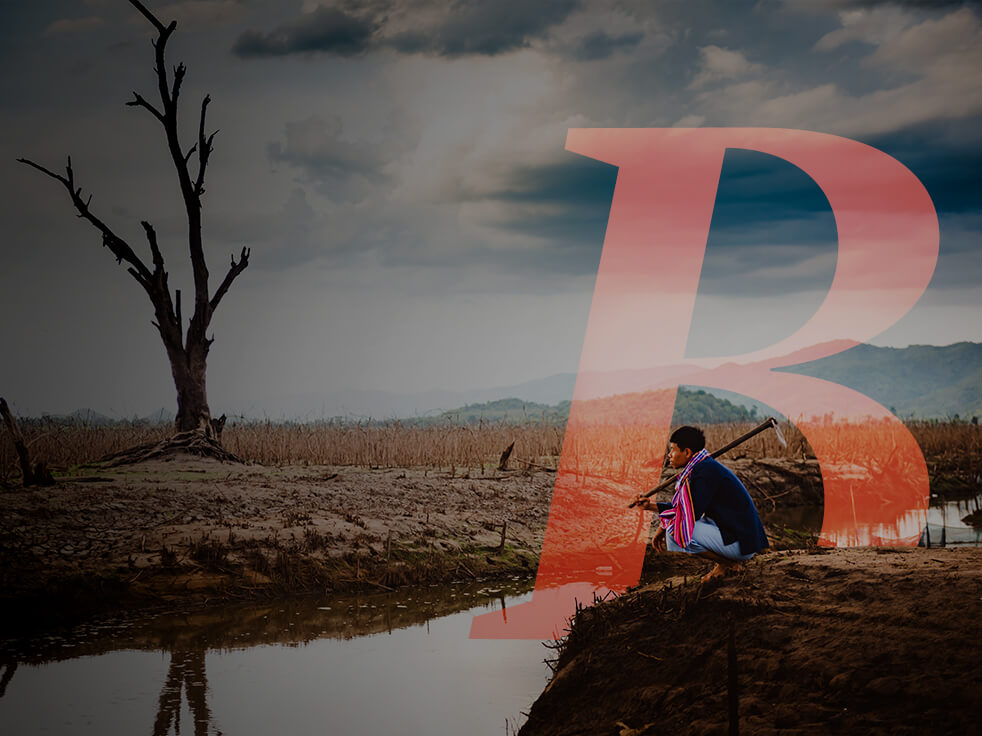
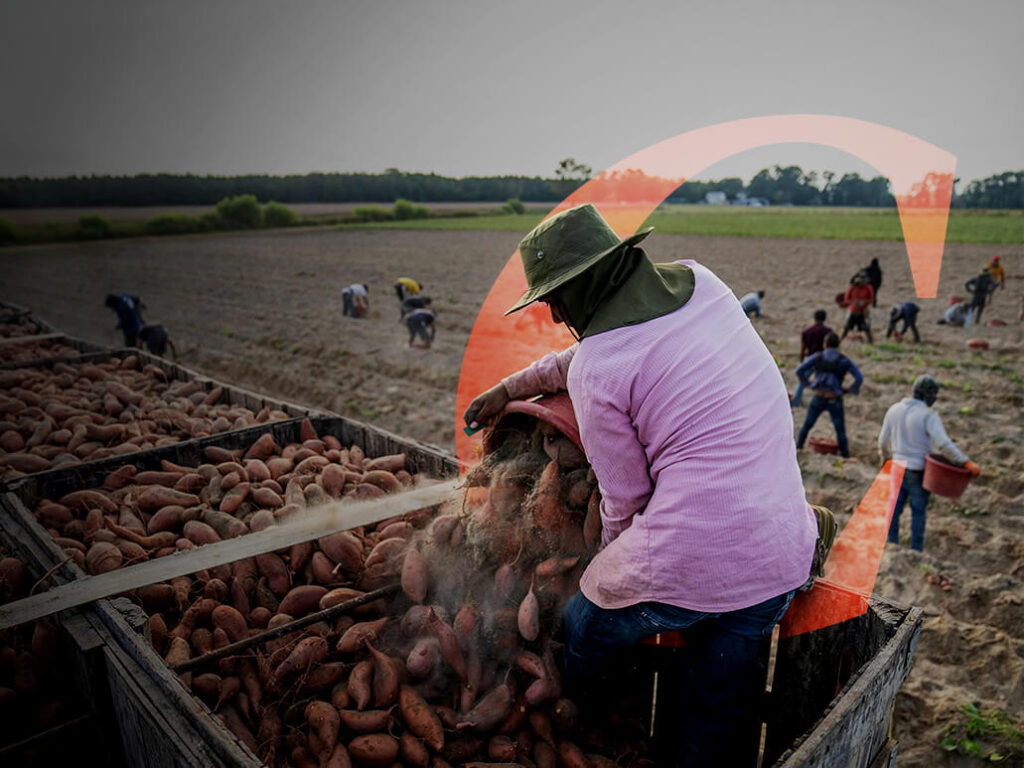
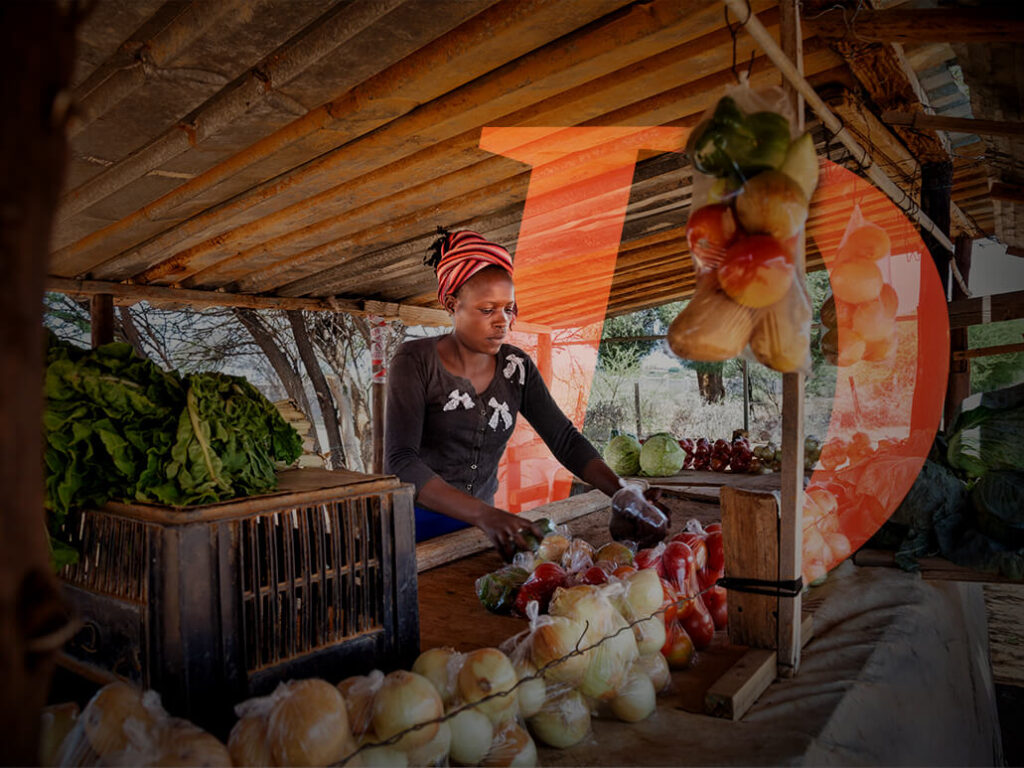
Team Formation and Confirmation of Attendance
Teams should have 3–4 students and a Team Captain to register the group. No team? No problem, confirm your attendance and we’ll place you in one on the Hackathon weekend.
All participants must confirm if they’re joining in person or online, and whether they’re part of a team or solo.
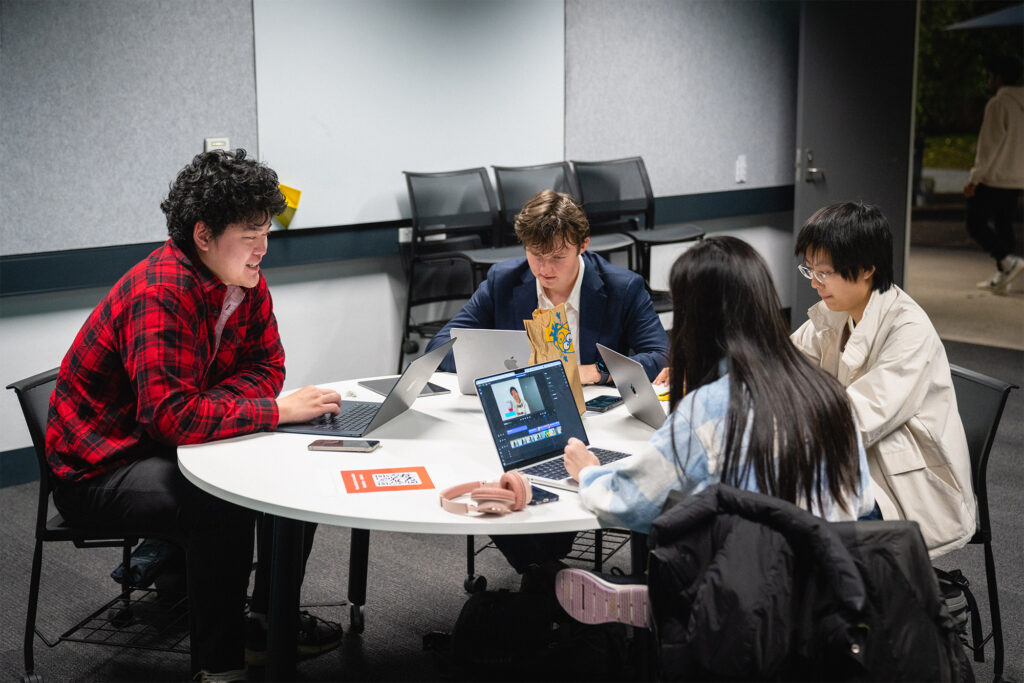
Registering your Team
If you are the Team Captain, use the link below to register your team.
Your team members need to provide you the email address they used to sign up for the Hackathon (it’s not always their Uni email address, so please double check).
Request Team Allocation
If you do not have a team, you should still confirm your attendance at the Hackathon, using the link below. This will allow us to place you into a team of similar students taking part in the Hackathon.
Your team members may be attending in-person at Sydney Uni or collaborating online.
Forming a team early has its advantages
By forming your team before the event, you can meet your team members, and possibly even your mentor, in advance to ensure a stress-free start to the Hackathon. You might even receive a clue about this year’s Hackathon Challenges too!
Please register your team or confirm your attendance before 16th July
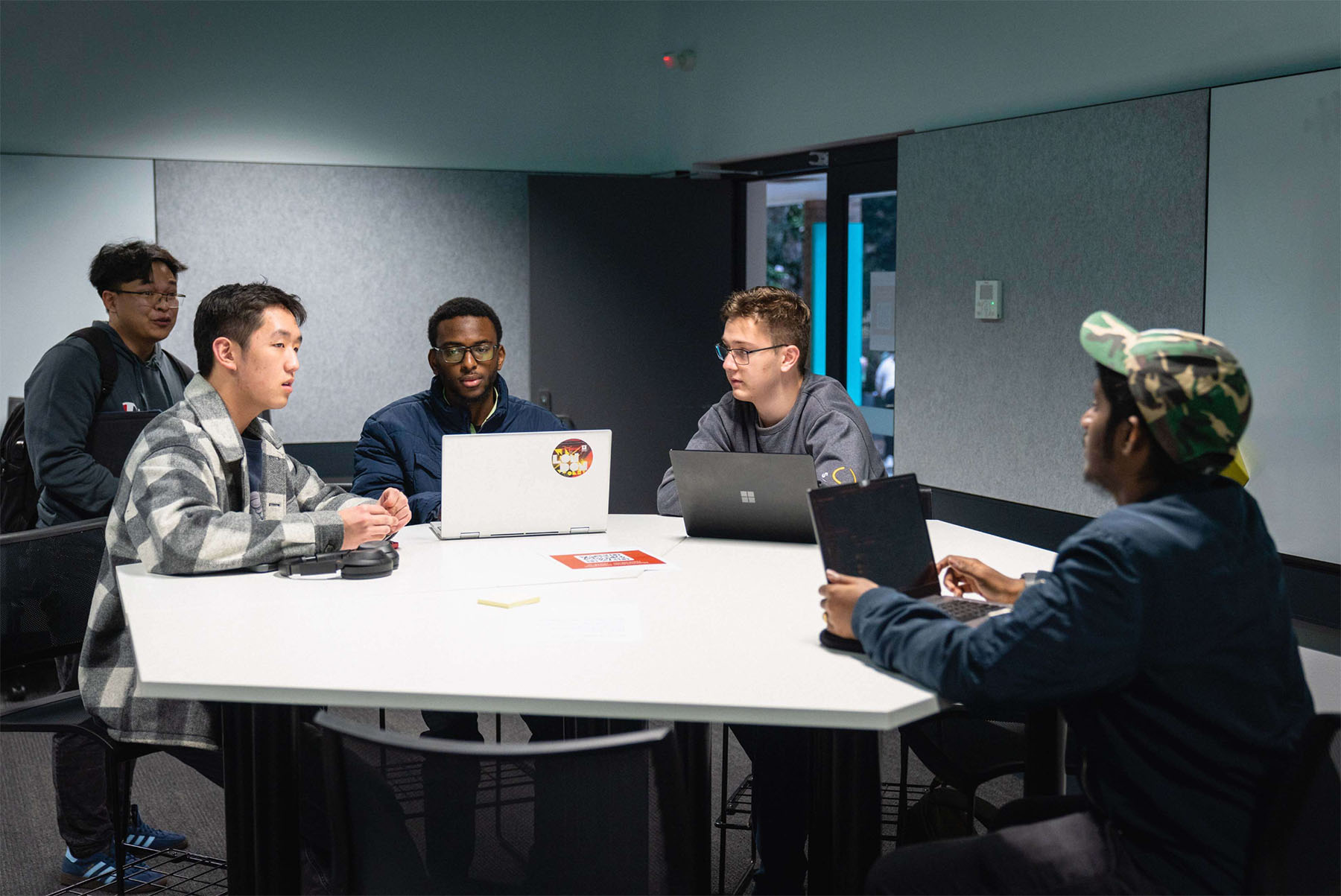
Join the 2026 Information Webinar
Work with like-minded students from across Australia, New Zealand, and the Pacific Islands to tackle real‑world humanitarian engineering challenges, and give your team the chance to win up to $5000.*
Learn about how you can be part of this multi-university hackathon event:
- Hear from some of last year’s mentors and judges, who helped to guide their teams along the path to creating winning engineering solutions.
- Learn from one of the 2025 prize-winning teams on what it takes to create a strong entry.
- Get your questions answered and discover how to join this year’s Hackathon
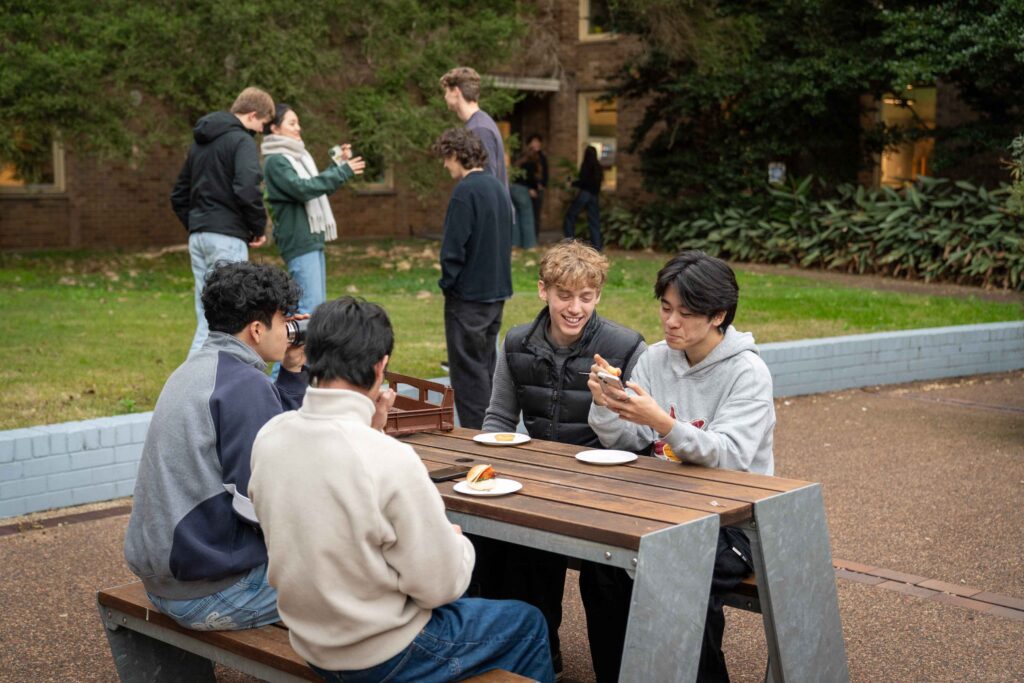
Key dates

Hackathon Webinar: 11 March 2026

Hackathon Weekend: 17 – 19 July 2026

Hackathon Awards Ceremony: 19 August 2026
Would you like to be part of the Hackathon 2026?
Register your interest
Team prizes

$5,000 – 1st Prize

$3,000 – 2nd Prize

$1,000 – 3rd Prize
All prizes are for the team, not each participant
Meet our
2025 Judges
Zahid Iqbal
Roads & Highways Manager, South East Asia & Pacific, SMEC
Dr Robert L. Guild
Pacific Region Infrastructure Facility Team Leader, Pacific Region Infrastructure Facility
Anna Gero
Doctoral Candidate, Griffith University
Dr Ian Opperman
Industry Professor, University of Technology Sydney & Co-founder ServiceGen
Dr Marlene Kanga AO FTSE FREng FAICD
Chair, Rux Energy
Joanna Buldeski
Principal Safeguards Specialist, Australian Infrastructure Financing Facility for the Pacific (AIFFP) for the Department of Foreign Affairs and Trade
Dr Elena Dehnavi
Research Fellow, Animal Genetics and Breeding Unit (AGBU), University of New England
Prof Salah Sukkarieh
Robotics and Intelligent Systems, Australian Centre for Robotics, The University of Sydney
Dr Sara de las Heras-Saldana
Research Fellow, Animal Genetics and Breeding Unit (AGBU), University of New England
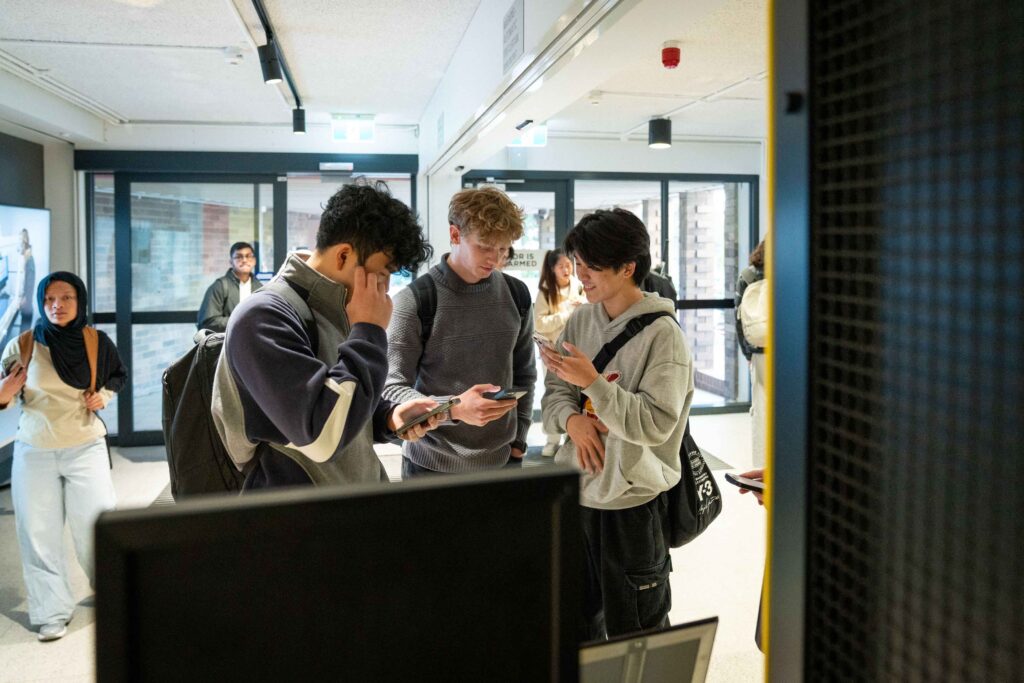
Program
Open to all university students in Australia, New Zealand and The Pacific Islands region
Our Humanitarian Innovation Hackathon is a weekend-long in-person and online hybrid event designed for university students to work collaboratively in cross-discipline teams to create technology-driven solutions for the most pressing humanitarian challenges.
Participants are asked to identify practical solutions for real and current problems from an existing international humanitarian response context.
Since our establishment in 2019, The Humanitarian Innovation Hackathon has seen hundreds of students address significant topics including climate change-induced population displacement, educating for the future, aiding island communities and the provision of clean water.
Rules, Entry & Eligibility
National and international university students domiciled in Australia, New Zealand and The Pacific Islands region, and studying at a university.
Entries are limited to undergraduate students.
Entrants will be required to provide evidence of their eligibility under these rules as a part of their application for entry. Example of evidence is a university ID card.
An individual may only participate in a single team. She/he cannot work across multiple teams.
Students must register as individuals. However, after registration, students can form their own teams of 3-4 students.
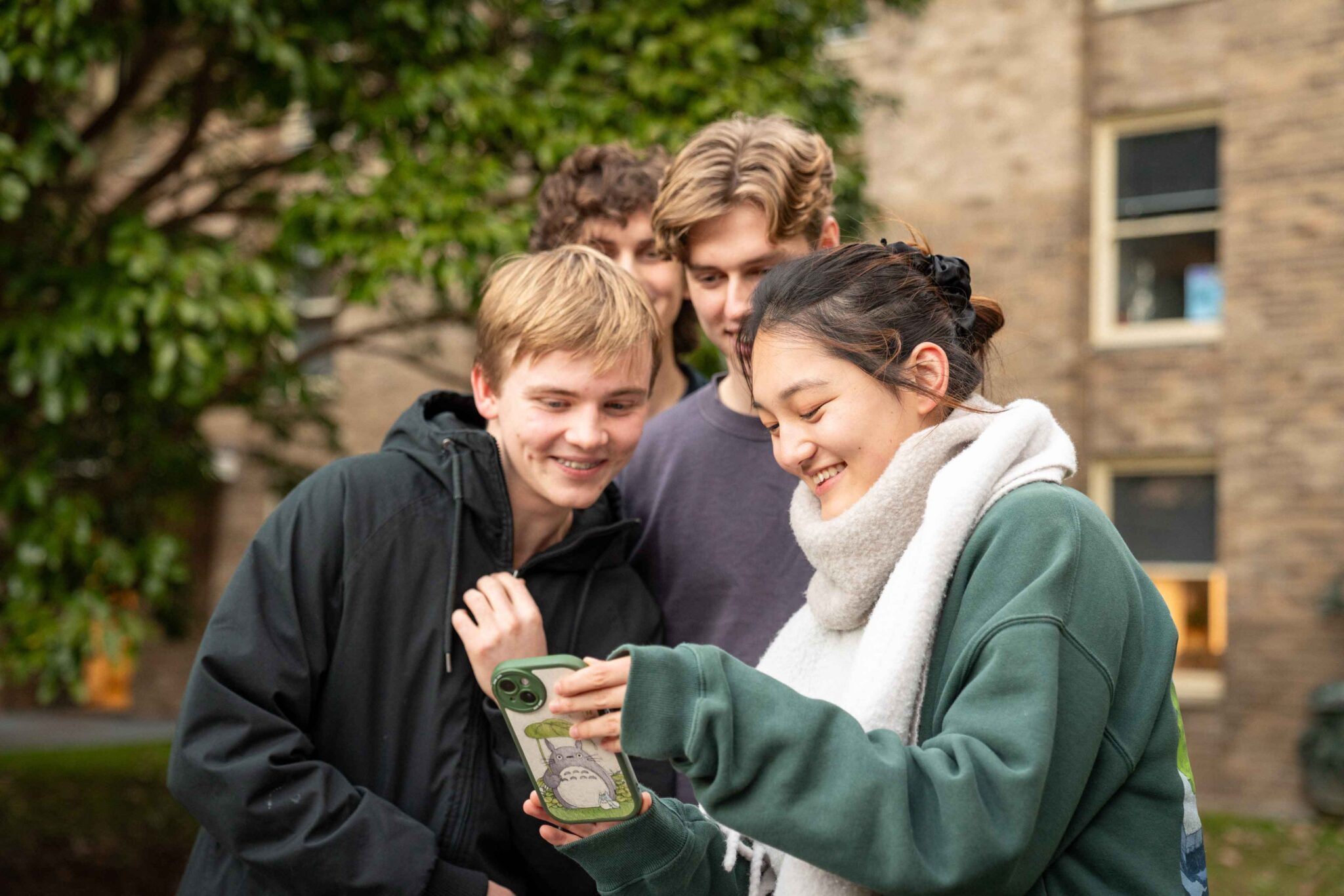
Hackathon
Explainer Video
Get ready for the 2026 Humanitarian Innovation Hackathon: our annual weekend-long humanitarian engineering contest.
Over 48 hours, you’ll work together in teams of 3-4 students to develop solutions to real-world humanitarian challenges.
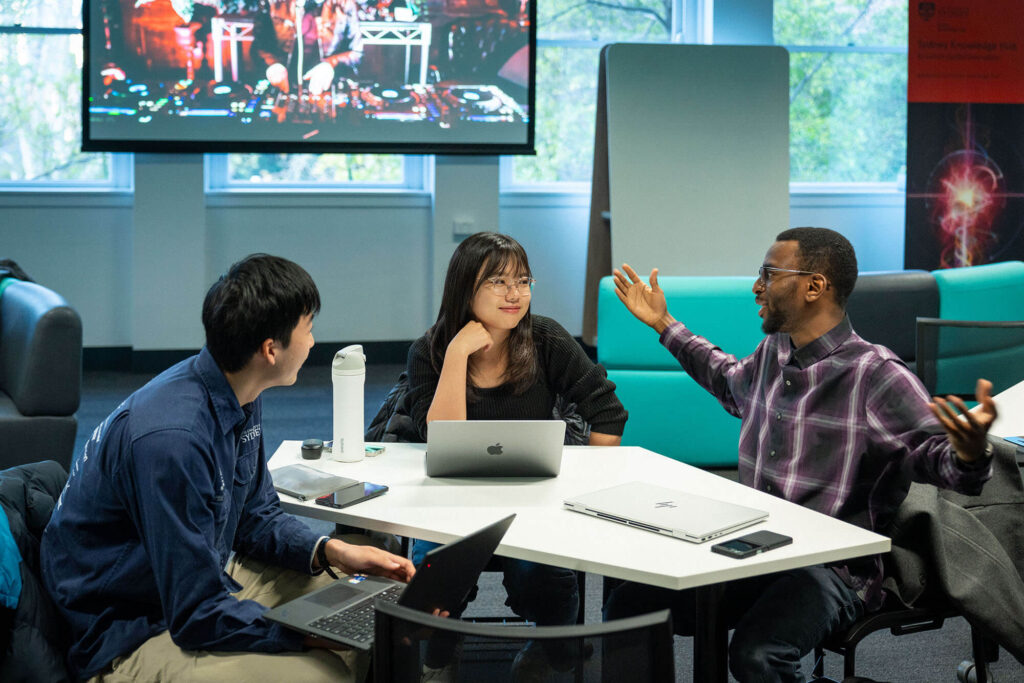
Connect with us
Join Us Online or In Person
The 2026 Hackathon is a hybrid event. There will be 1 in-real-life location that all participants can participate from. They also have the option of participating online, utilising the live-stream on the website and Slack.
If you are attending in-person, we have prepared an info pack with everything you need to know about the event and getting to and from the Sydney Knowledge Hub.
Our location
University of Sydney – Sydney Knowledge Hub
Hackathon Schedule
4pm – Opening Ceremony Commencement
4:30pm – Mini Challenge: Make a Team Promo
5:30pm – Hackathon Challenges Announcement
7pm – Make a Team Promo Winner Announcement
9am – Official Kickoff
9:10am – Mini Moment: How to make a video
5pm – Closing Saturday
9am – Official Kickoff
12pm – Submissions Due
12:15pm – DJ Beth Yen (back by popular demand)
1:45pm – Welcome to the Judges
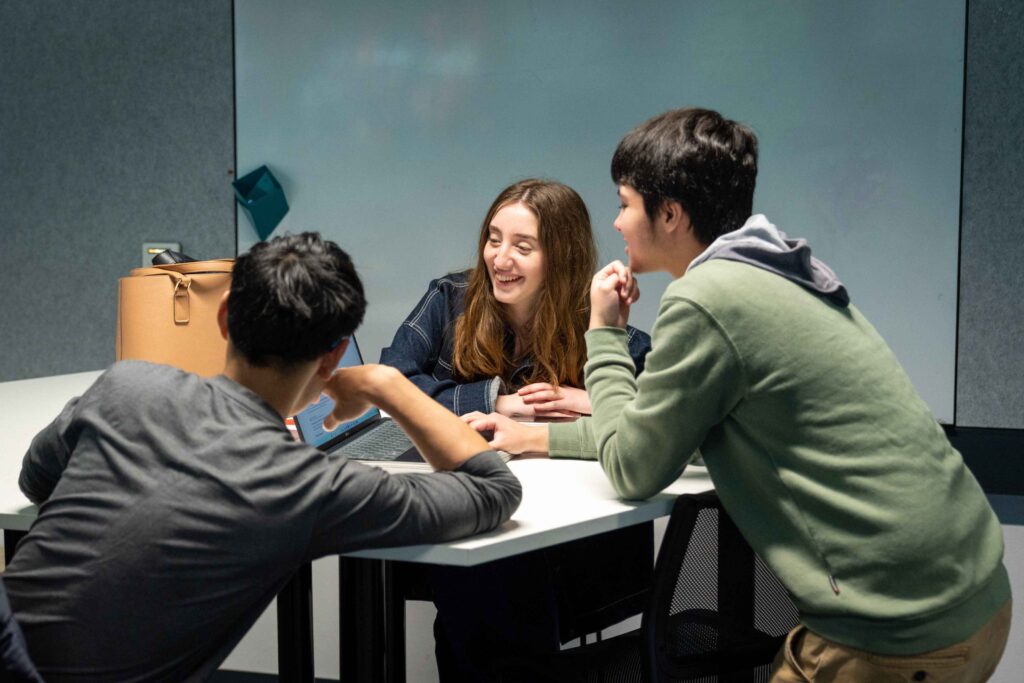
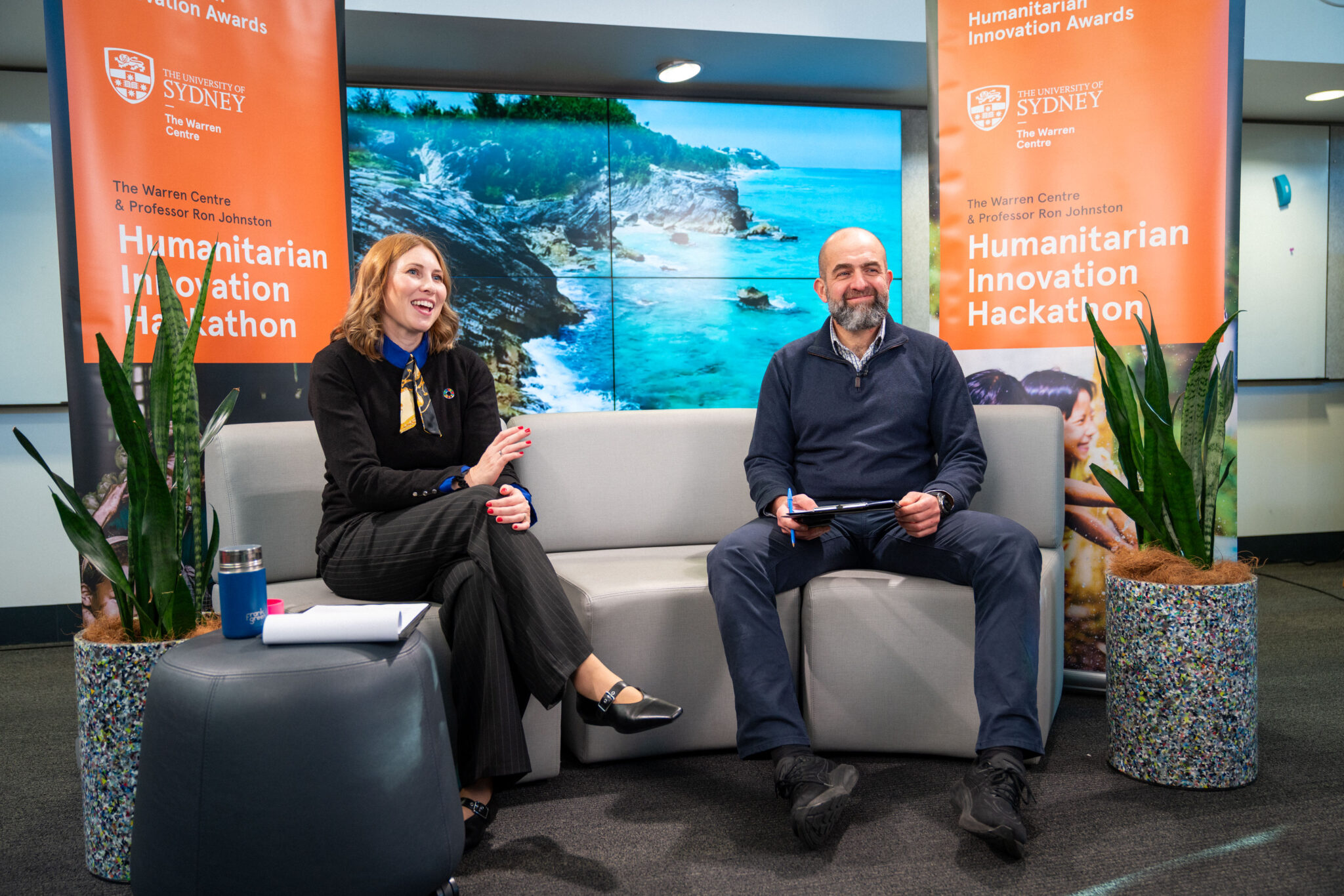
Become a Mentor
Wish you could participate, but your undergrad days are behind you?
Join our team as a Hackathon Mentor and be at the forefront of change in humanitarian innovation.
You will:
• Meet new and likeminded people in the industry
• See what’s innovating a whole new generation
• Be a part of finding real-world solutions
• Have something cool to put on LinkedIn
Sound like you?
Expressions of Interest are now open! If you’re interested, please email us at [email protected]. We look forward to hearing from you!
Meet the students!
Get to know the brilliant and passionate students behind this year’s Humanitarian Innovation Hackathon!
In this video, we hear what drives them, what they’re excited to create, and how they’re using their skills to make a real impact.
Innovation, collaboration and purpose. This is the future of engineering for good.
Hackathon Weekend
We set up a Hack Live studio in Sydney where the Hackathon is broadcasted LIVE across the country
Watch Highlights
What an incredible Hackathon its been! Over 200 students from 19 Australian and International universities took part in this year’s Humanitarian Innovation Hackathon.
With four challenges based on UN Sustainable Development Goal 2: Zero Hunger, we saw a host of incredible solutions: from aquaponic farming, to a mycelium-based biofertiliser, and a board game raising awareness on the risks of anaemia.
Hackathon supporters
Hackathon supporters help make the event possible by contributing their time, resources, and expertise
Venue Partner
Sydney Knowledge Hub, the University of Sydney’s startup incubator and research commercialisation hub
About Ron Johnston
Professor Ron Johnston, the former Executive Director of the Australian Centre for Innovation (ACIIC), has worked for more than 30 years to pioneer a better understanding of the ways that science and technology contribute to economic and social development, the characteristics of the global knowledge economy, and the processes and culture of innovation.
His special skill is based on the breadth of his knowledge across technologies and his ability to integrate them into a socioeconomic and environmental context.
These annual awards are named in honor of him, to recognise his outstanding contributions as Director of ACIIC for some 20+ years.
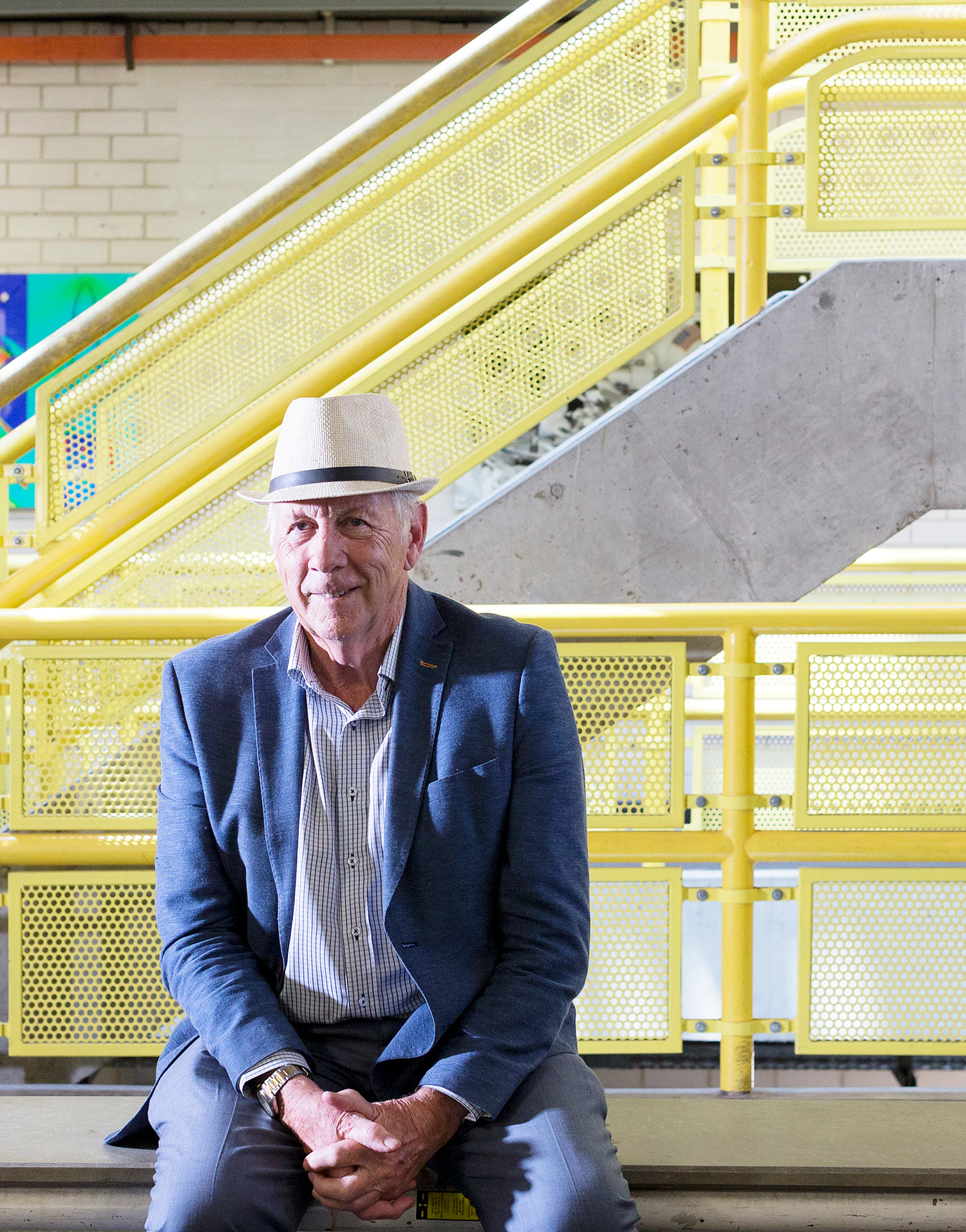
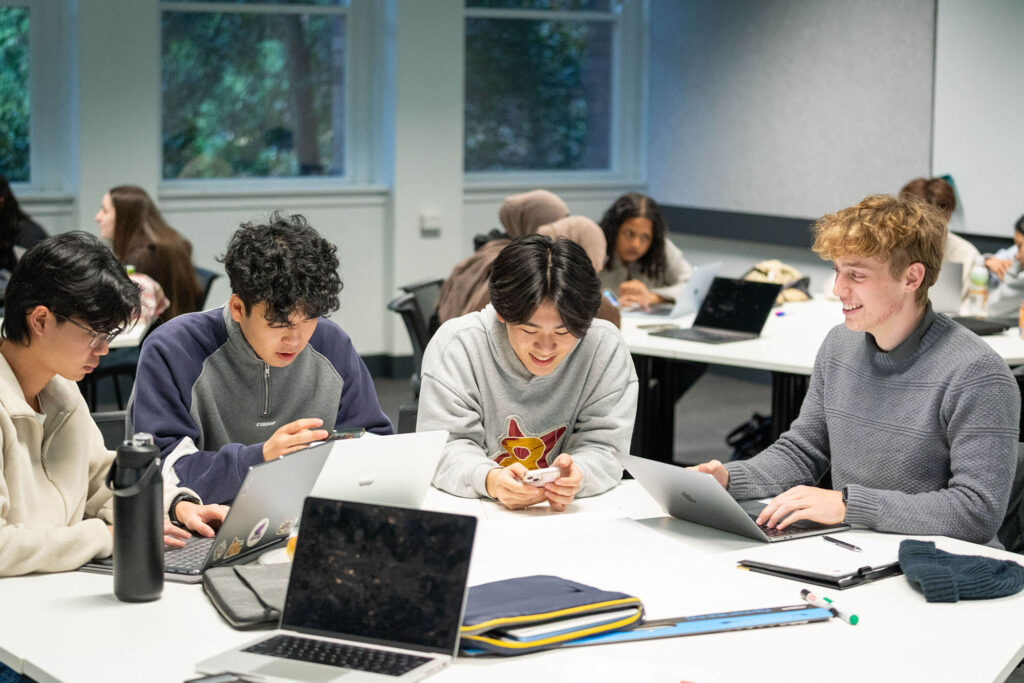
Hackathon Past Winners
Hackathon Innovation Winner (Medal and $5,000)
Farhan Agus Ferdiansyah, Hastria Pramudyati Kusuma, Devo Farel Andrew Siagian and Erlina Anggraeni
University of Sydney
Hackathon Innovation Runner Up Prize ($3,000)
Julie Davies, Jessica Li, George Allman and Terina Dawoud
University of Sydney
Hackathon Innovation 3rd Prize ($1,000)
Queena Wang, Kalyani Jijith, Pratul Singh Raghava and Gia Chopra
University of Sydney
Special Commendation
Angus Henderson, Wesley Henderson and Franco Yemma
University of Sydney & University of Technology Sydney
Hackathon Innovation Winner (Medal and $5,000)
- Casey Lockrey (University of Sydney)
- Harrison Ledger (University of New South Wales)
- Nicholas Chiaverini (University of Wollongong)
- Liam Harvey (University of Wollongong)
Hackathon Innovation Runner Up Prize ($3,000)
- Ellie June (University of Sydney)
- Hannah Poon (University of Sydney)
- Sophia Lee (University of Sydney)
- Kathy Kim (University of Sydney)
Hackathon Innovation 3rd Prize ($1,000)
- Wiseson Kuang (University of Canterbury)
- Vaughan Smart (University of Canterbury)
- Kien Ngo (University of Canterbury)
- Jessica Dixon (University of Canterbury)
First prize: RedR Ron Johnston Rapid Response Prize (Medal and $5,000)
- Adam Slimming (University of Adelaide)
- Alex Hofman (Monash University)
- Gemma Biezen (Monash University)
- Sam Hillcoat (Monash University)
Hackathon Innovation Runner Up Prize (Medal and $3,000)
- Elvera Abdel-Messih (University of Technology Sydney)
- Ji Han Qin (The University of Sydney)
Hackathon Innovation 3rd Prize ($1,000)
- Angus Henderson (The University of Sydney)
- Wesley Henderson (University of Technology Sydney)
- Franco Yemma (The University of Sydney)
Solarobotix Digital Innovation Prize ($1,000)
“Team 13B Pacific Green Machine”
- Arushanan Prapakaran (University of New South Wales)
- Connor Sinclair (The University of Sydney)
- Zhiyu Cheng (The University of Sydney)
- Ritvik Sharma (The University of Sydney)
First Prize: RedR Ron Johnston Rapid Response Prize (Prize: Medal and $5,000)
- Henry Howard (University of Sydney)
- Vicky-Rae Reed (Western Sydney University)
- Hogun Lim (University of Queensland)
- Nadia Akbar (Monash University)
Vonwiller Humanitarian Innovation Runner Up Prize
- Alex Hofman (Monash University)
- Alex Qin (Australian National University)
- Nyamjargal Namsraijav (University of Adelaide)
- Shute Zhang (University of Sydney)
Laing O’Rourke for Best Presentation (Prize: $1,000)
First Prize: RedR Ron Johnston Rapid Response Prize (Prize: Medal and $5,000)
- Edith Lume (University of Wollongong)
- Mansour Adie (University of Sydney)
- Thomas Sau (MacquarieUniversity)
- Ivy He (University of Sydney)
Vonwiller Humanitarian Innovation Runner Up Prize
- Emily Sacks (University of Sydney)
- Gayathri Aranhiyullathil Pradeep (University of New South Wales)
- Rebecca Kung (University of Sydney)
- Akrita Singh (Macquarie University)
- Aishwarya Kathikeuan (Macquarie University)
Engineers Australia People’s Choice Award
- Emily Sacks (University of Sydney)
- Gayathri Aranhiyullathil Pradeep (University of New South Wales)
- Rebecca Kung (University of Sydney)
- Akrita Singh (Macquarie University)
- Aishwarya Kathikeuan (Macquarie University)
First Prize: RedR Ron Johnston Rapid Response Prize (Prize: Medal and $5,000)
- Alex Hofmann (Monash University)
- Allan Soo (University of Technology Sydney)
- Ben Hofmann (Australian National University)
- Emily Unewisse (University of Adelaide)
- James Hurst (Australian National University)
Pacific Telecommunications Council / Beyond Essential Humanitarian Internship Appointent
- Katia Moors (University of Sydney)
- Thomas Sau (Macquarie University
Pacific Telecommunications Council First Prize for Best Humanitarian Digital Innovation
- Alida Fois from (University of Melbourne)
- Celina Dhobbie (Monash University)
- Charvi Mamidi (University of Sydney)
- Portia Sihvola (Queensland University of Technology)
Pacific Telecommunications Council Second Prize for Best Humanitarian Digital Innovation
- Avanish Shrestha (University of Sydney)
- Isabella Notarpietro (University of New South Wales)
- Rafe Skidmore (University of Sydney)
- Meg Phillips (University of Tasmania)
- Syed Emaad Rizwan (Macquarie University)
First Prize: RedR Ron Johnston Rapid Response Prize (Prize: Medal and $5,000)
- Cameron Choi (University of Sydney)
- Fransiska Bekti (University of Sydney)
- Kevin Miao (University of Sydney)
- Mark Cavanna (University of Sydney)
- Terrence Darma (University of Sydney)
- Aisha Warsame (Deakin University)
- Brittany Gardner (University of Sydney)
- Harshita Jyoti (Australian National University)
- Madeline Liddle (Australian National University)
- Seo Woo Bae (University of Sydney)
- Adele van der Winden (Queensland University of Technology)
- Liam McAllister (Queensland University of Technology)
- Riley de Jong (Queensland University of Technology)
- Tasfia Quader (Macquarie University)
- Thomas Larkin (Australian National University)
Laing O’Rourke best presentation: “Rafts & Rails”
- Boran Wang (University of Sydney)
- Jasper Rasmussen (University of Sydney)
- Joseph Malicdem (Macquarie University)
- Qiting Huang (University of Sydney)
- Victor Zhuang (University of Sydney)

